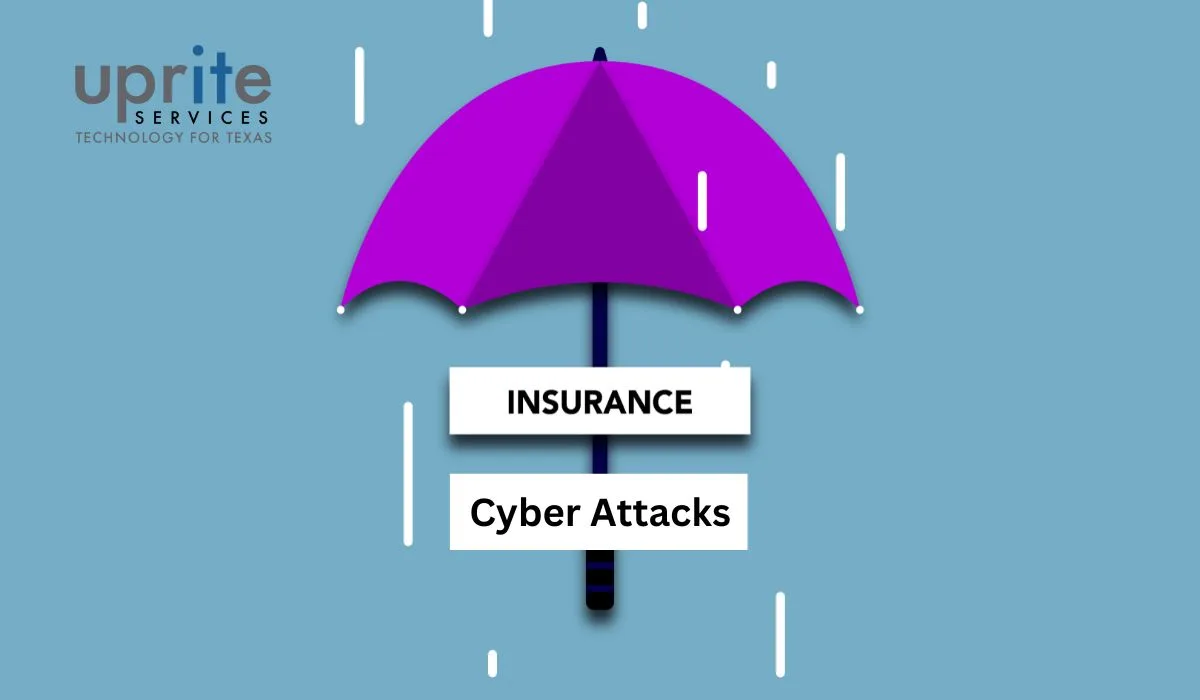
Cyberattacks are a severe threat to businesses of all sizes and industries. Cyberattacks can damage a business’s reputation, expose sensitive customer and employee data, disrupt operations, and result in legal liabilities and regulatory fines. To mitigate the risks and consequences of cyberattacks, businesses need to implement robust cybersecurity measures, such as firewalls, antivirus software, encryption, backup systems, and employee training. However, even the best cybersecurity practices cannot guarantee 100% protection from sophisticated and evolving cyber threats. That is why businesses should also consider investing in cyber insurance, a type of insurance that covers the financial losses caused by cyber incidents. In this artice we will explain How Cyber Insurance Can Protect Your Business from Cyberattacks. Let’s get started
What is cyber insurance?
Cyber insurance is a technical insurance policy that enables businesses to recover from the costs and damages associated with cyberattacks, such as data breaches, ransomware, denial-of-service attacks, phishing, and malware. Cyber insurance can cover both first-party and third-party liabilities, depending on the policy and the provider.
First-party cyber insurance covers the direct costs that a business incurs as a result of a cyberattack, such as:
- Data recovery and restoration
- Business interruption and lost income
- Crisis management and public relations
- Customer notification and identity protection services
- Cyber extortion and ransom payments
- Forensic investigation and legal counsel
- Regulatory fines and penalties
Third-party cyber insurance covers the costs that a business faces when a cyberattack affects its customers, partners, or vendors, such as:
- Claims and lawsuits from customers or other parties
- Settlements, damages, and judgments
- Legal defense and litigation expenses
- Privacy and security liability
- Media liability (such as defamation or intellectual property infringement)
Why do businesses need cyber insurance?
Cyber insurance can provide several benefits for businesses that want to protect themselves from the potential impacts of cyberattacks, such as:

Reducing financial losses:
Cyber insurance can help businesses cover the expenses and losses that they would otherwise have to bear out of their own pockets, which can be significant and even crippling for small and medium-sized businesses. If you want to learn how to protect your SBM form cyberattack you can learn here.
Enhancing reputation:
Cyber insurance can help businesses demonstrate their commitment to cybersecurity and data protection, which can boost their credibility and trustworthiness among their customers, partners, and regulators.
Improving resilience:
Cyber insurance can help businesses access the resources and expertise they need to respond to and recover from cyberattacks quickly and effectively, minimizing the disruption and downtime to their operations.
Complying with regulations:
Cyber insurance can help businesses meet the lawful and regulatory requirements for their industry such as the General Data Protection Regulation (GDPR) in the European Union or the Health Insurance Portability and Accountability Act (HIPAA) in the United States.
How do you choose the right cyber insurance policy?
Cyber insurance guidelines can vary widely in terms of the scope, limits, exclusions, and tips they offer. Therefore, businesses must carefully consider their needs and risks before choosing a cyber insurance policy that suits them best. Some of the factors to consider include:

- The type and size of the business and the industry it operates in
- The nature and volume of the data and systems that the business handles and stores
- The level and sophistication of the cybersecurity measures that the business has in place
- The potential costs and damages that the business could face in the event of a cyberattack
- The availability and affordability of cyber insurance guidelines in the market
Businesses should also confer with their insurance brokers or brokers, who can help them compare and select the best cyber insurance policy for their situation. Additionally, businesses should examine and revise their cyber insurance policies regularly, as their needs and risks may change over time.
What are the challenges of cyber insurance for businesses?
Cyber insurance also poses some challenges for both insurers and clients, such as:

Limited historical data on damages:
Without comprehensive and quality data on cyber damages, it is difficult to estimate potential damage from cyber attacks and set appropriate insurance prices. Some industry participants say that the federal government, state governments, and industry can work together to collect and share incident data to help them assess risk and develop cyber insurance products.
Cyber insurance has no common definition:
Industry officials pointed out that the definition of insurance terms such as “cyber terrorism” is different, so it is not clear what is covered. It was suggested that the federal government, state governments and the insurance industry could cooperate and proceed with the common definition.
Increased insurance premiums and reduced compensation limits
According to industry sources, insurance premiums have risen due to increased demand due to the frequency and severity of cyberattacks and rising costs of insurers. A recent survey of insurance brokers found that more than half of respondents saw their premiums rise by 10-30% in the second half of 2020. In addition, some insurers have reduced compensation limits for high-risk sectors such as healthcare and education.
Cyber-specific insurance
Insurers are increasingly providing insurance specifically for cyber risk rather than providing cyber risk in set with other compensation. This shift reflects the desire to clarify the covered content and raise the compensation limit specifically for cyber. However, this means that companies need to purchase more than one insurance to cover different types of risk, which can increase complexity and cost.
How to choose the right cyber insurance for a company?
For cyber insurance, the compensation content, limits, disclaimers and premiums vary greatly. Therefore, organizations must carefully evaluate their needs and risks and choose the best cyber insurance. Factors to consider include:
- Type and size of the business and the industry it operates in
- Nature and volume of the data and systems that the business handles and stores
- Level and sophistication of the cybersecurity measures that the business has in place
- Potential costs and damages that the business could face in the event of a cyberattack
- Availability and affordability of cyber insurance policies in the market
Businesses should also consult with their insurance agents or brokers, who can help them compare and select the best cyber insurance policy for their situation. Further, businesses should check and update their cyber insurance policies regularly, as their needs and risks may change over time. Watch our latest collaborative webinar on cybersecurity and cyber insurance with Crandall & Associates Insurance.
Conclusion
Cyberattacks are a growing and evolving threat that can pose serious challenges and costs for businesses. Cyber insurance is a smart and proactive way to save businesses from the economic and reputational impacts of cyber incidents. By choosing the right cyber insurance policy, businesses can enhance their cybersecurity posture, reduce their exposure to cyber risks, and improve their resilience and recovery capabilities. Cyber insurance is not a replacement for cybersecurity, but a complement that can help businesses achieve a comprehensive and effective cyber defense strategy.
Read More:
How to Conduct a Cybersecurity Risk Assessment for Your Business?
Webinar on cybersecurity and cyber insurance with Crandall & Associates Insurance


